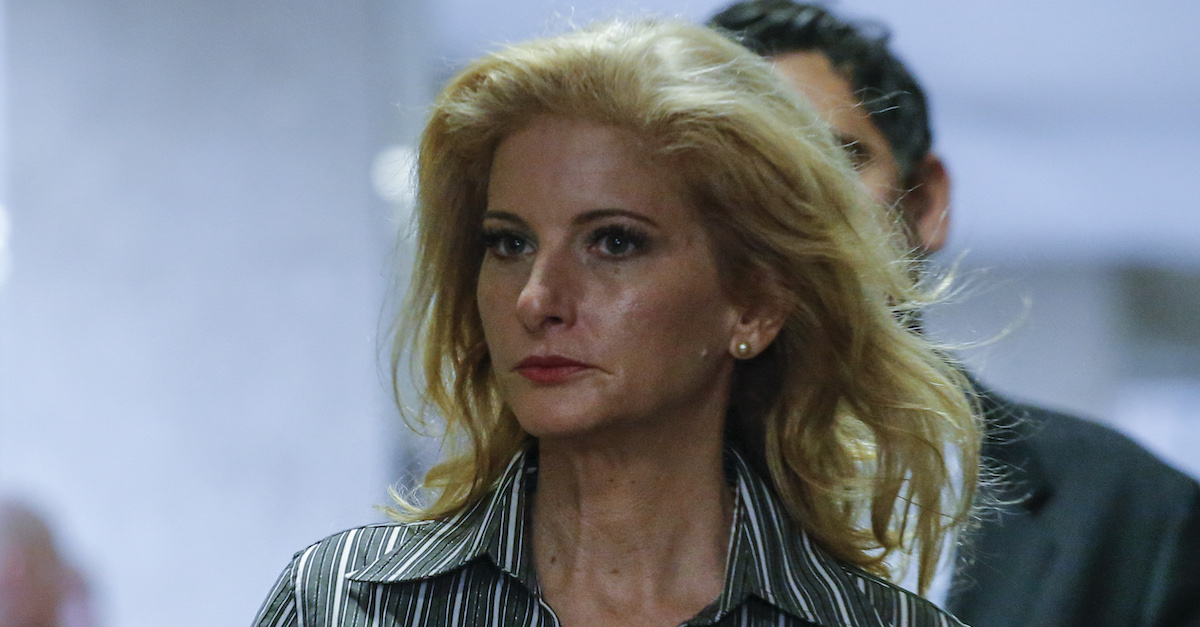
The highest court in New York State has cleared the way for a sexual misconduct-focused defamation lawsuit to move forward against President Donald Trump.
The New York Supreme Court determined that former Apprentice contestant Summer Zervos’s longstanding claims against Trump will be heard by the New York Court of Appeals. In New York, and a few other states, the appeals court functions as the highest court in the jurisdiction.
The case stems from an alleged groping incident at the Beverly Hills Hotel in 2007. According to Zervos, Trump forced himself on her in his hotel room against her will. Zervos went public with her claims in 2016.
“To be clear, I never met her at a hotel or greeted her inappropriately a decade ago,” Trump said in response to her accusation.
That public denial prompted the ongoing defamation case—initially filed in January 2017–under the more atypical and specific claim of defamation per se.
Defamation per se is an unprotected form of actionable speech which accuses a person of an inherently harmful falsehood–frequently concerning the defamed person’s sexual behavior, suggesting they committed a crime, acted unethically as a professional, or alleging that they have contracted what courts refer to as a “loathsome disease,” an old-time legal euphemism for a sexually transmitted infection.
Zervos’s case has seen its share of ups and downs for both sides. The time-consuming nature of the legal wrangling so far has likely been a boon to the 45th president but the pace has picked up considerably in recent months.
Zervos won a string of process victories late last year in the realm of discovery decisions and a highly fought deposition request for testimony from Trump himself.
“Despite delays, the court process has worked,” a Zervos filing from October 2019 notes. “During discovery, [Trump] and his company, the Trump Organization, were forced to produce documents that corroborate, in striking detail, the public account that [Zervos] gave before this case was filed regarding her interactions with [Trump].”
The referenced discovery decision produced series of calendar entries and Trump Organization emails confirm that Trump and his personal bodyguard flew from Las Vegas to Los Angeles and that Trump stayed at the Beverly Hills Hotel on the night in question.
Zervos’s attorneys maintain that those documents corroborate their client’s account “with even more granularity and with a degree of precision that [Zervos] could not have known were she not telling the truth.”
In November 2019, Zervos won another discovery battle, ascertaining Trump’s phone records which showed a series of phone calls between herself and the president immediately before and immediately after the alleged sexual assault.
Later that same month, Judge Jennifer G. Schecter issued an expedited opinion that granted Zervos’s long-put-off deposition request.
“[Trump] yet again sought to stay this case, and yet again was denied that emergency application,” Zervos’s attorney Mariann Wang told Law&Crime via email at the time.
Tuesday’s ruling, however, kicks the can down the road for a substantial while longer and could give Trump the opportunity to reprise his basic argument of presidential immunity anew.
Trump’s attorneys previously argued for “an order granting stay of the trial court proceedings pending the outcome of motion for reargument or leave to appeal” and said such a stay was necessary “given the novel and important Constitutional issues involved, the special considerations due the President’s request for interlocutory appeals and to prevent irreparable harm.”
Judge Schecter rubbished that line of thought—noting that “[i]mmunities are grounded in the nature of the function performed, not the identity of the actor who performed it.”
The request for the case to be heard by the appeals court was filed by Trump’s own legal team—which considered the Tuesday ruling a win for the defense.
For now, Trump is largely hanging his defense on the argument that a sitting president can’t be bothered with such litigation or tort claims while in office.
Trump’s lawyer, Marc Kasowitz, said “we are pleased,” by way of a statement issued through his law firm in response to the ruling and obtained by the Washington Post.
“We believe that the Court of Appeals will agree that the U.S. Constitution bars state court actions while the President is in office,” the statement said.
[image via KENA BETANCUR/AFP/Getty Images]
Have a tip we should know? [email protected]